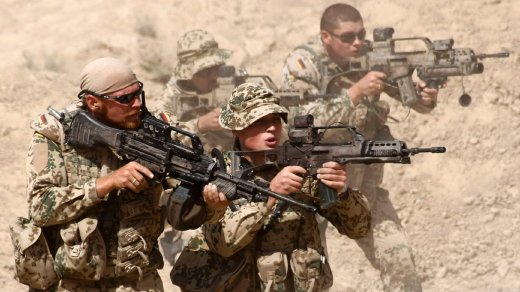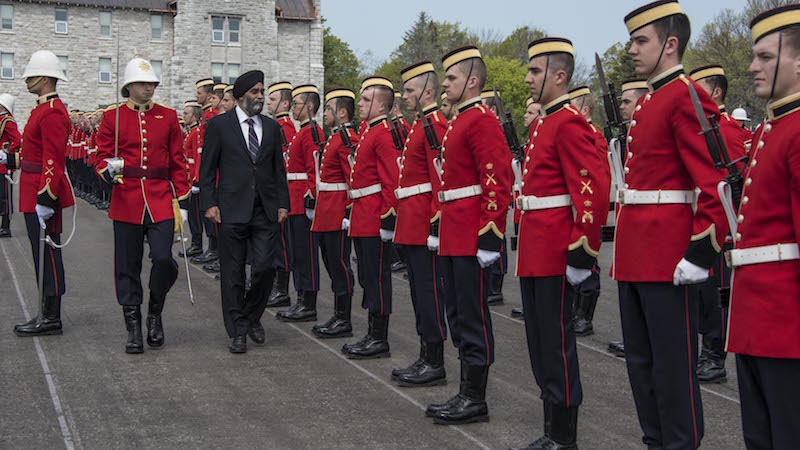On June 14th, 2021, the 30 NATO member State leaders will convene to discuss key topics that will shape the Alliance’s future. At its core, Secretary-General Jens Stoltenberg believes the summit “is a unique opportunity to reinforce NATO as the enduring embodiment of the bond between Europe and North America.” The summit’s agenda includes a focus on transatlantic unity and solidarity – embracing the NATO 2030 initiative first proposed by NATO Leaders in December 2019, requesting that Secretary-General Stoltenberg “lead a forward-looking reflection process to make NATO stronger politically and fit for the future.” The NATO 2030 initiative suggests ways to strengthen the Alliance over the next decade and beyond. The purpose of this article is to highlight one particular contribution to this agenda – the Young Leaders’ perspective.
On February 4th, 2021, the NATO 2030 Young Leaders – hereinafter referred to as the ‘Group’ – submitted their report to Secretary-General Stoltenberg to consider leading up to the Brussels meeting in 2021. The report is guided by “the belief that the Alliance must broaden and re-conceptualize security” to account for today’s changing security landscape. The recommendations reflect a “holistic and inclusive understanding of security.” According to the NATO 2030 Young Leaders, security consists of an interconnected framework beyond the conventional military-oriented understanding of security concerns.
PART I: A 360defence and deterrence for a resilient Euro-Atlantic space
To better defend against evolving threats in today’s world, the Group recommends a broader understanding of defence and deterrence. This more comprehensive understanding requires reliance on civil-military relations to create a holistic approach to security. The Group recommends adherence to the Defence Investment Pledge while at the same time committing to reform the 2% metric after 2024. The new metric is meant to reflect “the full spectrum of challenges that [countries] face and are required to address” and measure defence outputs rather than just spending. In line with the Group’s report, our authors have explored this topic in both the need to meet the 2% threshold and the misgivings of the rule.
Moreover, the Group encourages NATO to stand at the forefront of strategic risk reduction by “promoting and facilitating dialogue on nuclear arms control, non-proliferation and disarmament.” At the same time, the Alliance must better communicate the role of nuclear weapons in their defence posture. Enhancing NATO’s communication on these two ideas will boost the Alliance’s legitimacy in the public’s eye and ensure that they are leaders in the changing strategic environment. Robert Baines, the President and CEO of the NATO Association of Canada, recently took part in a debate on this very subject and highlighted the importance of NATO leadership in this field.
PART II: What we stand for: NATO’s values in a changing world
The Group asserts that “political and strategic cohesion must go hand-in-hand with a resounding commitment to…democratic values.” In this sense, NATO must recommit to the democratic values that founded the Alliance. To achieve this, the Group recommends an “annual discussion on democratic principles” – not dissimilar to President Joe Biden’s Summit for Democracy. Moreover, the Group recommends a doubling down on its advocacy for democracy, which includes incorporating human and gender security considerations and enhancing the public’s awareness of malicious influence campaigns. Recommitting to democracy will bolster the Alliance’s Partnership for Peace framework with new value-based principles that will enhance NATO’s global reach. In this way, NATO will be “at the centre of a global network of democratic alliances that will uphold peace and security.”
PART III: NATO partnerships and dialogues: A strong transatlantic core with a global reach
NATO cannot solve the threats to the Euro-Atlantic region alone. The Group suggests that the Alliance work “as a global bridge-builder for peace and security” by engaging with a new generation of leaders to ensure security outside the North Atlantic region. The Group recommends enhancing the NATO-EU partnership – there are 21 member States in common – by exchanging Special Representatives from the respective organizations. Furthermore, the Group encourages a global perspective to NATO’s existing Partnership for Peace framework. The program must expand beyond its current members to enhance the Alliance’s “political dimension” and cover both traditional and non-traditional security topics.
The Group explains that a significant focus should be on the Indo-Pacific region – strengthening existing partnerships with countries like Australia, Japan, New Zealand, and South Korea. Moreover, NATO should use a three-pronged approach to China. 1) Ensure Allied cohesion and unity. 2) Enhancing domestic resilience and reducing opportunities for economic coercion and “malicious targeting” 3) Remain open to cooperating with China on areas where there are converging interests. These recommendations reflect the need for NATO to have a responsible and proactive approach to the region.
PART IV: The Alliance in a changing climate: Shifting gears towards a sustainable future
The Group made their stance plain and clear: “the Alliance can and should do more to address the existential threat of climate change.” To this end, the Group recommends that NATO appoint a coordinating task force to ensure a coherent effort across the Alliance to address climate-related security threats. The Group also recommends that the NATO Leaders make public statements that deem climate change a fundamental existential security risk to the Alliance. The Group suggests framing a green transition as a win-win solution. It will work to minimize greenhouse gas emissions while also reducing logistical challenges. Part of the solution is to include developing sustainable technologies and awareness as a part of the reformed 2% spending metric previously outlined by the Group. Ultimately, NATO must improve its attention and accurate understanding of the threat climate change poses to global security.
PART V: Innovating as an Alliance: Emerging and Disruptive Technologies
The Group’s final recommendations centre around the need for NATO to develop a strategic ecosystem of innovation within the Alliance. This is the recognition that falling behind in technological advancements weakens deterrence mechanisms. The Group suggests an analysis of technological strengths and weaknesses, intending to enhance investments in AI and green, quantum, and space technologies. Moreover, NATO must serve as an ethical norm-setter for any technological development to safeguard the Alliance’s liberal democratic values.
Concluding thoughts
The 2021 NATO Leaders Summit will serve as an inflection point for the Alliance. As the world begins transitioning towards a post-COVID recovery, NATO must consider emerging threats. The work of the NATO 2030 Young Leaders represents a fresh, holistic perspective on global security. Security is not one-dimensional – it is interconnected with health, economics, the environment, etc. Accepting a broader definition of security will ultimately make us safer. While we cannot participate in the 2021 Brussels Summit, I encourage everyone to register for the Brussels Forum, which aims to increase public diplomacy and provide a public-facing event alongside the NATO Summit.
Note: Vice-President of the NATO Association of Canada, Kevin Vuong, was appointed Canada’s NATO Young Leader.
Photo: Brussels landmarks go NATO blue for Summit (2021), by NATO North Atlantic Treaty Organization via Flickr. Licensed under CC BY-NC-ND 2.0.
Disclaimer: Any views or opinions expressed in articles are solely those of the authors and do not necessarily represent the views of the NATO Association of Canada.




